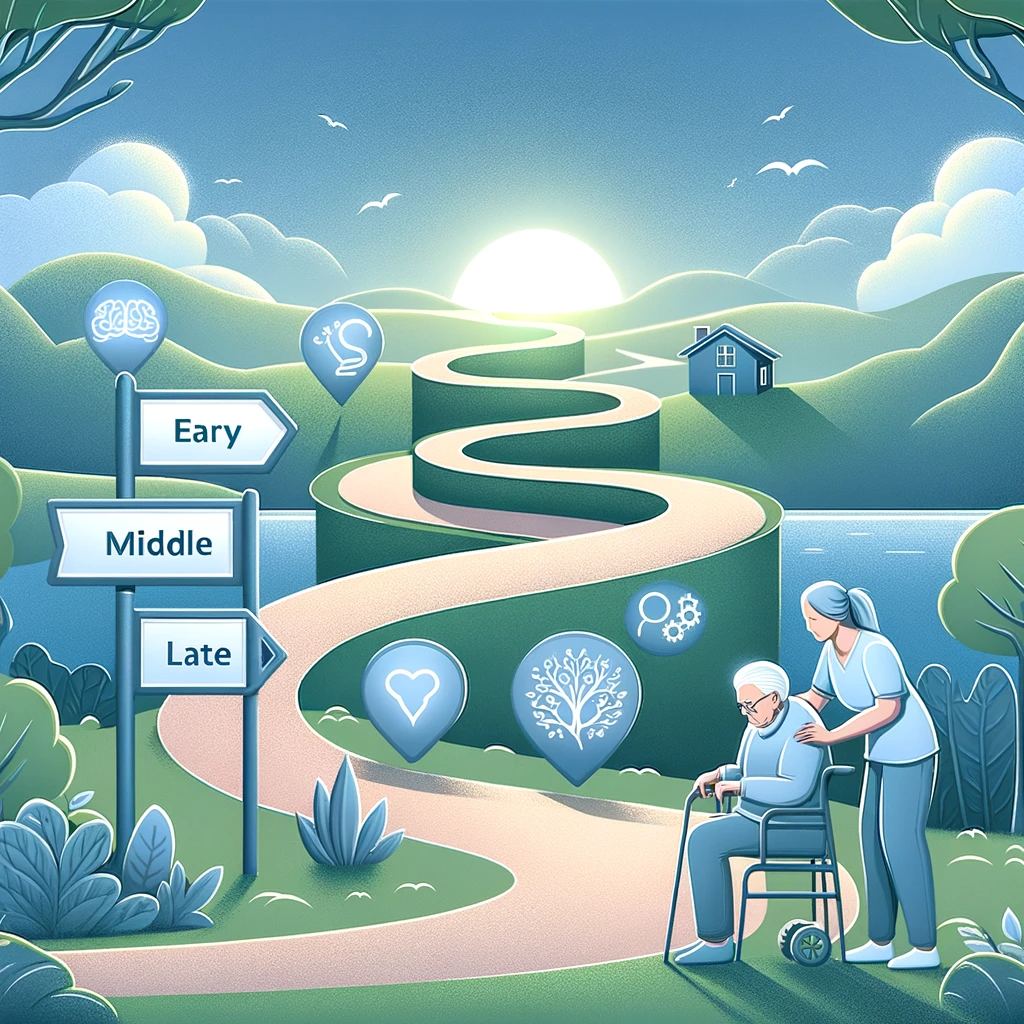Understanding and Managing the Activities of Daily Living in Dementia Care
Explore the stages of dementia, including cognitive and physical changes, and learn effective caregiving strategies. Understand how to assist with daily activities, the importance of promoting independence, and the difference between habilitation and rehabilitation in dementia care

Introduction to Activities of Daily Living (ADLs) in Dementia Care
Caring for an elderly individual with dementia at home involves navigating the complexities of both normal aging and the more challenging aspects of cognitive decline. A fundamental component of this care revolves around the Activities of Daily Living (ADLs). These are routine tasks that people perform every day without assistance. Understanding these activities, and how they are affected by dementia, is crucial for providing effective and compassionate care.
Recognizing Normal Aging Changes
Before delving into the specifics of dementia care, it's important to differentiate between normal aging changes and those caused by dementia. Normal aging may include slower movement, decreased muscle strength, and mild memory lapses. Recognizing these changes helps caregivers to identify when additional support is needed for activities that have become challenging due to dementia.
The Six Activities of Daily Living (ADLs)
ADLs are divided into six basic categories that are essential for day-to-day functioning. These are:
Bathing and Hygiene: The ability to bathe oneself and maintain dental, hair, and nail hygiene.
Dressing: The capability to make appropriate clothing decisions and physically dress and undress oneself.
Eating: This includes the entire process of eating, from using utensils to chewing and swallowing without assistance.
Mobility: The ability to move independently, including getting in and out of a bed or chair.
Continence: The control over bladder and bowel functions.
Toileting: The ability to get to and from the toilet, using it appropriately, and cleaning oneself.
Navigating the Stages of Dementia:Cognitive, Physical Changes, and Caregiving Strategies
Understanding Dementia: Cognitive and Physical Changes
Dementia is a progressive condition characterized by cognitive and physical changes that vary across its different stages. Recognizing these changes is crucial for providing appropriate care.
Early Stage of Dementia
Cognitive Changes: Memory loss, especially short-term memory, difficulty in finding words, and challenges in planning or organizing tasks.
Physical Changes: Minimal at this stage, but some may experience coordination issues.
Caregiving Tips: Encourage independence, provide gentle reminders, and establish a routine to help manage cognitive changes.
Middle Stage of Dementia
Cognitive Changes: Increased memory loss, including significant events and faces, confusion about time and place, and difficulty in handling complex tasks.
Physical Changes: Gradual decline in physical abilities, increased risk of falls, and possible sleep disturbances.
Caregiving Tips: Simplify tasks into smaller steps, enhance home safety to prevent falls, and maintain a calm, structured environment.
Late Stage of Dementia
Cognitive Changes: Severe memory loss, limited or loss of speech, and potential difficulty recognizing loved ones.
Physical Changes: Increased frailty, difficulty in walking, and eventual need for full-time assistance with ADLs.
Caregiving Tips: Focus on comfort and quality of life, use non-verbal communication, and consider professional support for complex care needs.
Challenges in Dementia and Caregiver Support
As dementia progresses, challenges increase:
Communication Difficulties: Simplify language, use visual aids, and be patient in conversations.
Behavioral Changes: Look for triggers, maintain a routine, and create a calm environment.
Emotional Stress: Provide emotional support, engage in reminiscing, and seek support groups for both the caregiver and the person with dementia.
Promoting Independence in ADLs
Encouraging self-sufficiency in performing ADLs is vital:
Allow Time: Give them time to complete tasks at their own pace.
Step-by-Step Guidance: Break tasks into simpler steps.
Adaptive Equipment: Use tools like grab bars or special utensils to facilitate independence.
Habilitation vs. Rehabilitation in Dementia Care
Rehabilitation: Focuses on restoring lost skills and is often used after injuries or surgery.
Habilitation: In dementia care, habilitation is key. It emphasizes supporting existing abilities and adapting to the current level of functioning, rather than trying to restore lost abilities.
Accepting the Progressive Nature of Dementia
It’s crucial to understand that once an ability is lost in dementia, it typically cannot be regained. This acceptance is critical for effective caregiving.
Strategies for Managing ADLs at Home
- Bathing: Ensure safety with non-slip mats, consider seated showers, and maintain a warm, comfortable environment.
- Dressing: Opt for easy-to-wear clothes, encourage choice, and assist only as needed.
- Eating: Use adaptive utensils, offer small, nutritious meals, and ensure a distraction-free environment.
- Toileting: Establish a regular schedule, use clear signage for the bathroom, and consider easy-to-remove clothing.
Practicing Patience and Compassion
Patience is a cornerstone of dementia caregiving. Understanding the limitations, communicating calmly, and showing empathy are essential.
Empathetic and Adaptive Caregiving
Caring for a person with dementia requires an understanding of the changes they experience, a focus on habilitation, and a commitment to promoting their independence. By adapting caregiving strategies to meet their evolving needs, caregivers can provide compassionate support that respects the dignity and individuality of their loved ones with dementia.
When an alternative setting is considered
ADLs in Long-Term Dementia Care
In the context of long-term care for individuals with dementia, these ADLs become critical markers of a person's ability to live independently. Dementia often affects these activities in various ways:
- Memory Loss and Confusion: Can lead to difficulties in performing ADLs such as forgetting the steps involved in dressing or eating.
- Physical Impairments: Dementia can coexist with physical limitations, making mobility or continence more challenging.
- Behavioral Changes: Resistance to care, especially in activities like bathing and toileting, is common in later stages of dementia.
ADLs and Long-Term Care Policies
Long-term care policies often use an individual’s ability or inability to perform ADLs as a benchmark for determining the level of care required. Understanding these needs is essential for tailoring care plans and ensuring that the necessary support is provided, whether at home or in a long-term care facility.
ADLs in Hospice Care for Dementia
In hospice care, the focus of ADL management shifts towards maximizing comfort and quality of life. This might involve:
- Personalized Care: Tailoring ADL assistance to the individual's preferences and comfort levels.
- Pain Management: Ensuring that any discomfort or pain is adequately managed to facilitate ADLs.
- Emotional Support: Providing emotional and psychological support is as important as physical care.
The Importance of ADLs in Dementia Care
In dementia care, whether at home or in a long-term care setting, ADLs form the foundation of everyday care. Understanding and effectively managing these activities can significantly improve the quality of life for individuals with dementia. Caregivers need to be adaptive, empathetic, and knowledgeable about the unique challenges presented by dementia, ensuring that care is not only about physical health but also about preserving dignity and autonomy as much as possible.
More Tips and Strategies for Specific Activities of Daily Living
Dementia and adaptations to the home
Navigating the Common Behaviors of Dementia
You might also like this article:







